Further Words on Heat Death
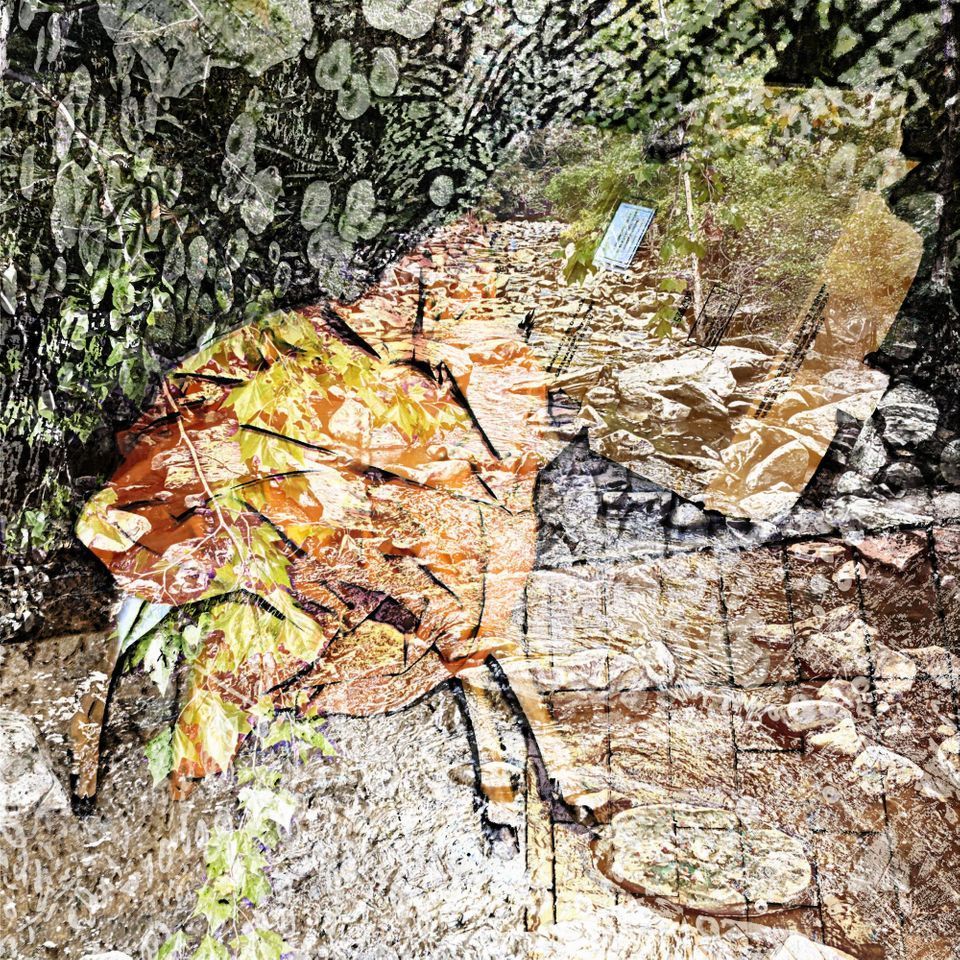
Trees, like empires. Echoes of Russian collapse in Black Widow. When a “dinosaur” is not a dinosaur, and the linguistic rules of moose. Apocalyptic beasts. Ecological changes in culture.
You know what it is, baby. It’s Heat Death, the newsletter that puts the “cult” in culture writing. We are your guides, Asher and Saul Elbein, journalists, fiction writers and (occasionally) space-time archeologists.
Over the last few months, we’ve been using this newsletter as a space to experiment a bit with different kinds of writing, different tones, and different topics. Call it a soft launch, if you like, or Heat Death 1.0: a chance to figure out what we want this thing to be. And we’re beyond thrilled that so many of you have decided to come along for the ride.
Now it’s time to talk about what’s next.
What's Next?
First, we’re doing a membership drive! If you’d like to upgrade to a paid membership, it’s 5$ a month, or 50$ for your first year. That money will go toward web hosting, running the newsletter, and helping us both carve out the time to write, as well as to pay guest contributors for their work!
Second, we’re making a few structural changes to the newsletter! If you stick with a free membership, you'll continue to get half of each issue, including updates about our writing and at least one short essay. Guest essays will also continue to be free. (You’re following us because you like our work, after all: and if you can’t afford to contribute, we’ll make sure you’re still getting fun stuff.
Paid members, meanwhile, will have access to the complete newsletter, including the exclusive longer essays and the ability to leave comments. (Again, membership is cheap—just 5$ a month!) Plus, you get the warm glow of supporting independent and weird writing.
We’ve got some really cool stuff coming your way, including all new guest essays, further excursions into science and culture, and Heat Death’s first big project: DECLINE AND FALL, a long-teased series of essays and interviews tracing the shadow history of American empire through the lens of—what else?—Star Wars. Paid support helps make all of this happen.
Great! So how do I change my plan?
Two ways! The first involves logging into Heat Death via the Login button on the top left of heat-death.ghost.io. You’ll get a confirmation email. Click through that, and you can change your membership plan by clicking Account.
Alternately, just go through here and pick a plan!. The year-long membership option is 17% off until September 30th.
Five Faces of Heat Death
A lot of you have joined us comparatively recently, so on this, the eve of our relaunch, we thought we’d look back at some of our favorite posts from the last few months -- a grab bag of topics that help lay out the breadth and scope of our interests, and what we think Heat Death can be.

“Everything’s Riverdale”
In this June essay, Asher teases out the bubbling sexual and political turmoil beneath the surface of late-20th Century American life through the medium of one of the few postwar institutions still going strong: Archie comics.
Quote: “Around and around and around they’ve gone, for almost 80 years, across a sprawling network of spinoff comics, digests, radio, videogames, movies and television shows, including the discount-David Lynch show Riverdale. It’s a simple setup and they are simple characters, by and large. But after 80 years and innumerable creative hands, even simple things tend to acquire weight and mass and idiosyncrasies of their own.
Archie Comics is like a koan. One must peer past the simple surface to glimpse the more occluded depths. One must be initiated into the deeper mysteries. Drink deep and descend. In the words of comics critic Richard Jones: everything’s Riverdale.”
Why to read it: Forbidden (barely) subtextual lust, light sprinkles of eldritch horror, and a reading experience that Saul called “The only piece that could have possibly made me give a shit about Archie.”
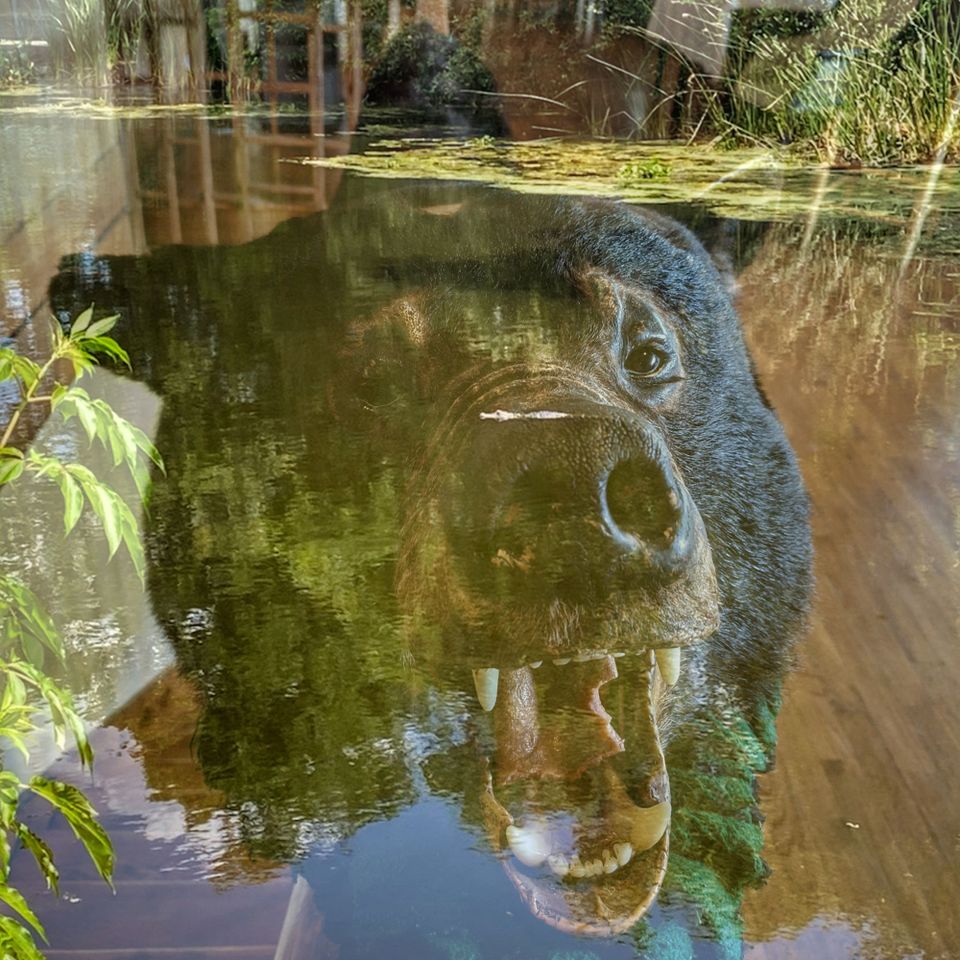
“On the Ecology of Monsters”
In June, Saul looked into the question of what we are searching for when we look for legendary creatures like Bigfoot or the wendigo or other charismatic mytho-fauna — a bridge into a lost world, from before the habitat of the conditionally real and (a great deal else) was destroyed.
Quote: “When the habitat goes away, the creatures that inhabited it go with it — whether or not those creatures ever per se existed. Because the world of the forest, and particularly the deep forest, is different from the world of house, road, or farm. It is not only that out in the tall timber one can suddenly feel lost, or at the brink of being lost, which is to say, swallowed by the great superorganism of wood and mulch and bough. It is not simply the feeling one sometimes gets — of things moving just outside the corner of vision, or the weight of unseen eyes. It is also the exploratory tap tap tap of life pressing against one's consciousness; the sense of being not just seen but regarded. Considered. The sense that there is something else there — perhaps many somethings — looking back.
Why to read it: You want to believe. You long for that prickling of wonder and longing at the back of your neck.
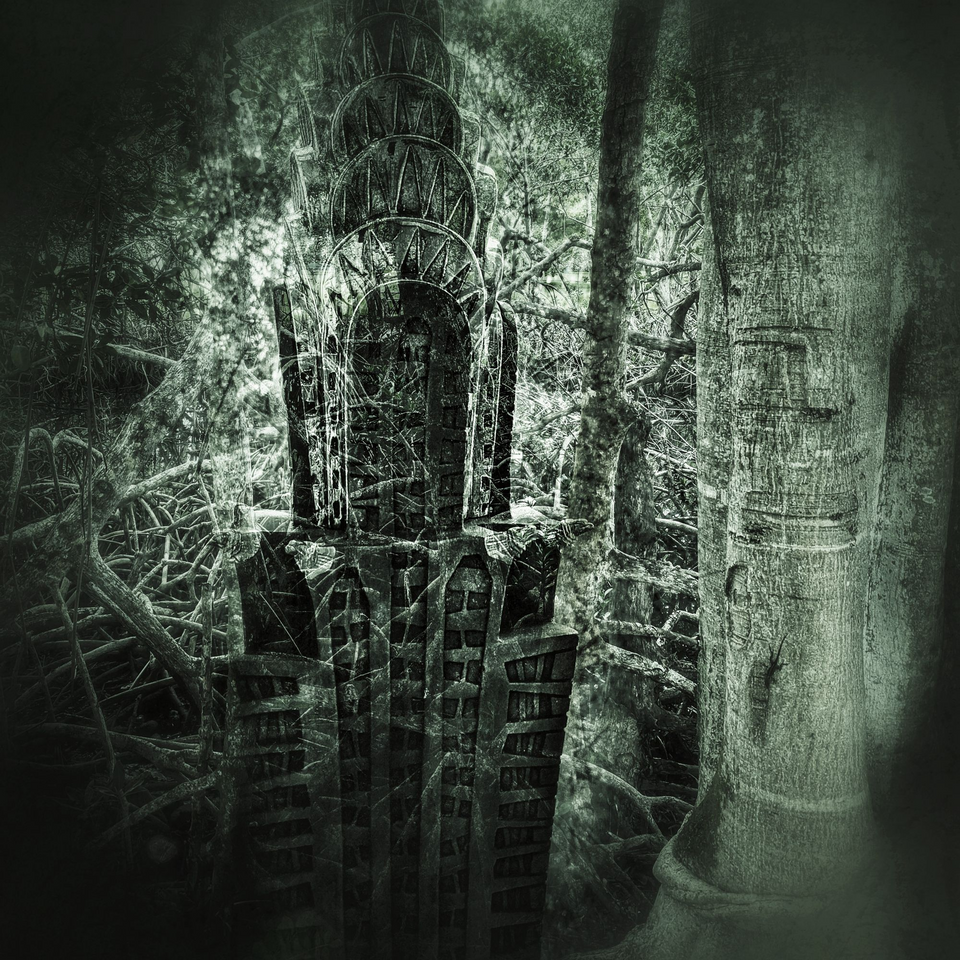
“Some Things We Must Let Die”
In late July, Saul looked at the all-explaining idea that genre media — science fiction, fantasy, comix — follows a regular “generations” of growth and death rather like the succession of a forest. Considering that led him to another question: why the American left feels so ineffectual, and how it might move forward.
Quote: Stories … "typically enter their fourth and fifth generation forms when there is a corporate desire to keep a piece of content alive, rather than let it rest and become the raw fodder for second generation content." Such a desire is the byproduct of the world of late-stage capitalism, a world in which media — to use an odious term that has somehow slipped into common use — is dominated by "properties" owned by the great feudal-corporate structures like Disney and Warner Brothers.”
Why to read it: Because, as Asher said after reading it, "it's a pretty brilliant juggling of several different ideas about cultural succession." And because it will probably save you from, or help you win, at least a dozen stupid arguments over the rest of your life.
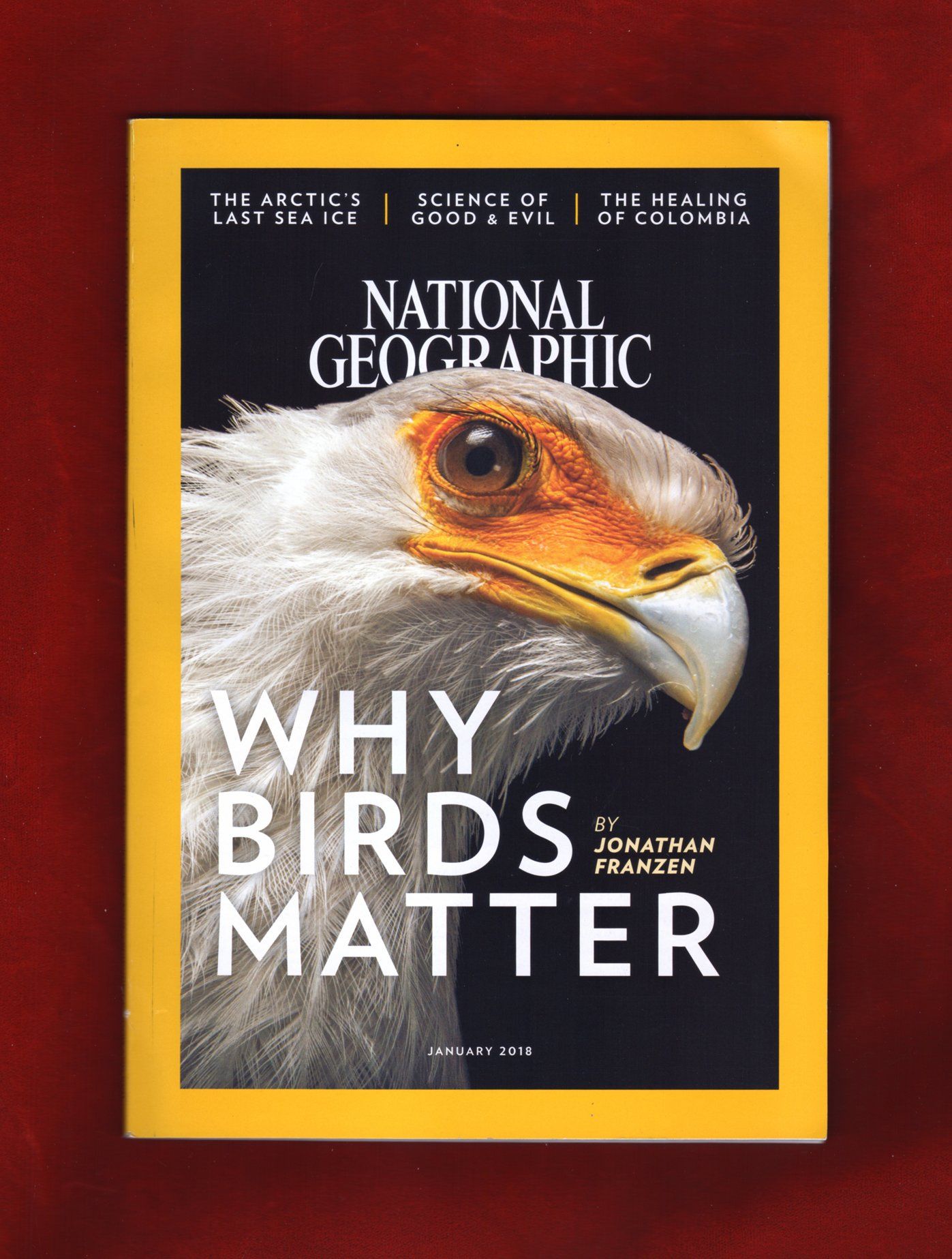
"Do Birds Matter"
In late May, Saul discovered this alarming National Geographic cover in his in-laws' summer house, in which one of America’s boldest writers dared to confront one of its boldest questions: why anyone should give a shit about the feathered denizens of this planet — who are no doubt watching you right now.
Quote: “Deep in the article Franzen notes that the question of Why Birds Matter must be addressed, sadly, because people at dinner parties, unconvinced by his hobby of globetrotting around the tropical world looking at rare warblers, kept asking it of him.
“We leave it as an exercise for the reader to imagine the madness that would ensue if other common, but stupid, questions asked at American dinner parties had to be dignified with their own defensive cover articles.”
Why to read it: We answer the question Franzen was actually asking, but didn’t have the guts for. But also — that bird will probably notice if you don’t. Don't test him. He's nibbly.
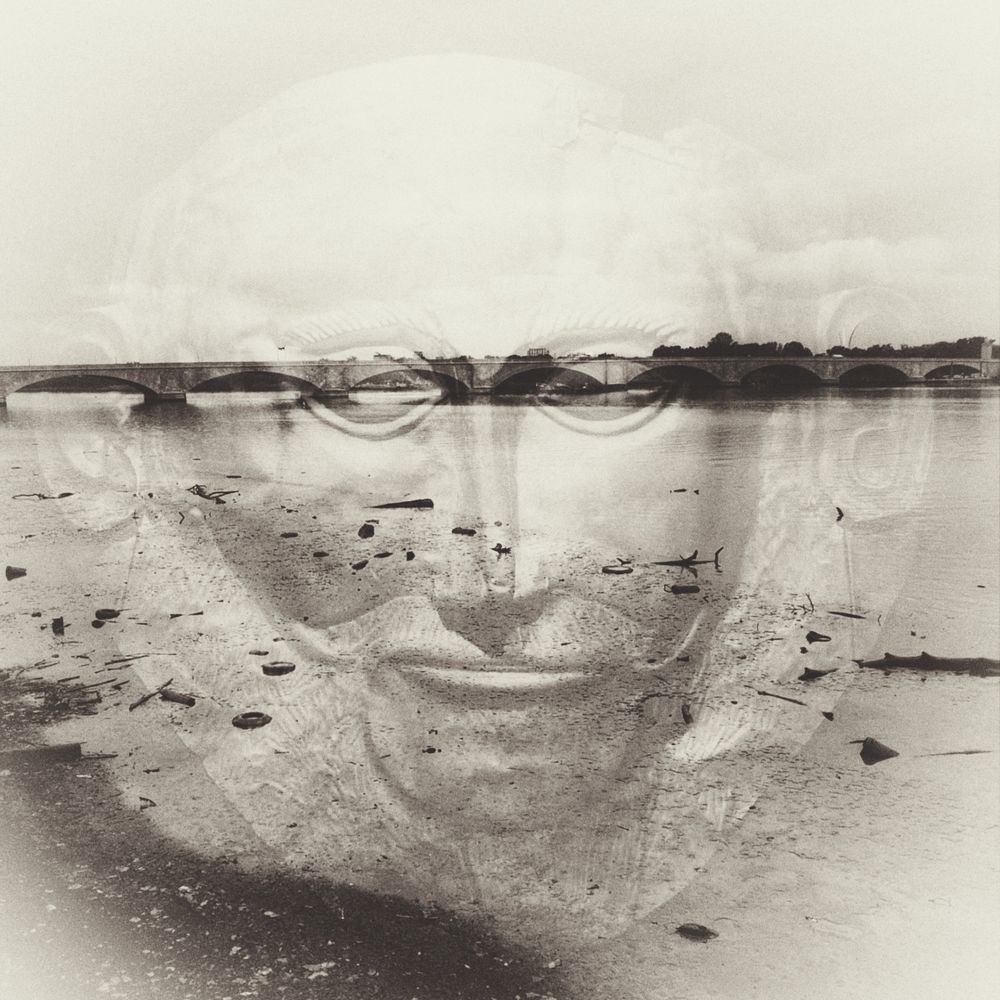
THE BRONZE AGE COLLAPSE
In this June 24 essay, amid a wave of brutal heat cooking the West Coast, Asher tackled feelings of resplendent gloom by considering disaster, persistence, and the sword-and-sandals excitement of the Bronze Age collapse.
QUOTE: “We like to think of this ‘dark age’ as the opposite of the late Bronze Age, with its high degree of interconnectivity, but now we see that there still was interconnectivity, just on a different scale.”
This should not surprise us, Asher writes, because "Every story begins in the last story, and every story suggests its own sequel, and crucially, they’re all part of the same chain. Coastlines of ancient seaways presage modern voting patterns; Plato and Aristotle’s ideas about the hierarchy of life were adopted by Christian thinkers and haunt evolutionary theory to this day. Rome falls; Babylon falls; people move on into a new world with roots in the old. Much is lost. But you'd be surprised at how much sticks around.”
Why to read it: You too long, in some strange way, for the days of Hittite war chariots and strange enchantment. You're very interested in trade routes. Or if a little bit of history will help you feel armed to gaze headlong into the future.
After all, that’s what Heat Death is all about.
This has been HEAT DEATH. Thanks so much for reading. If you like what we do, you can sign up for a membership or tell your friends and family. See y'all on the other side.

Member discussion